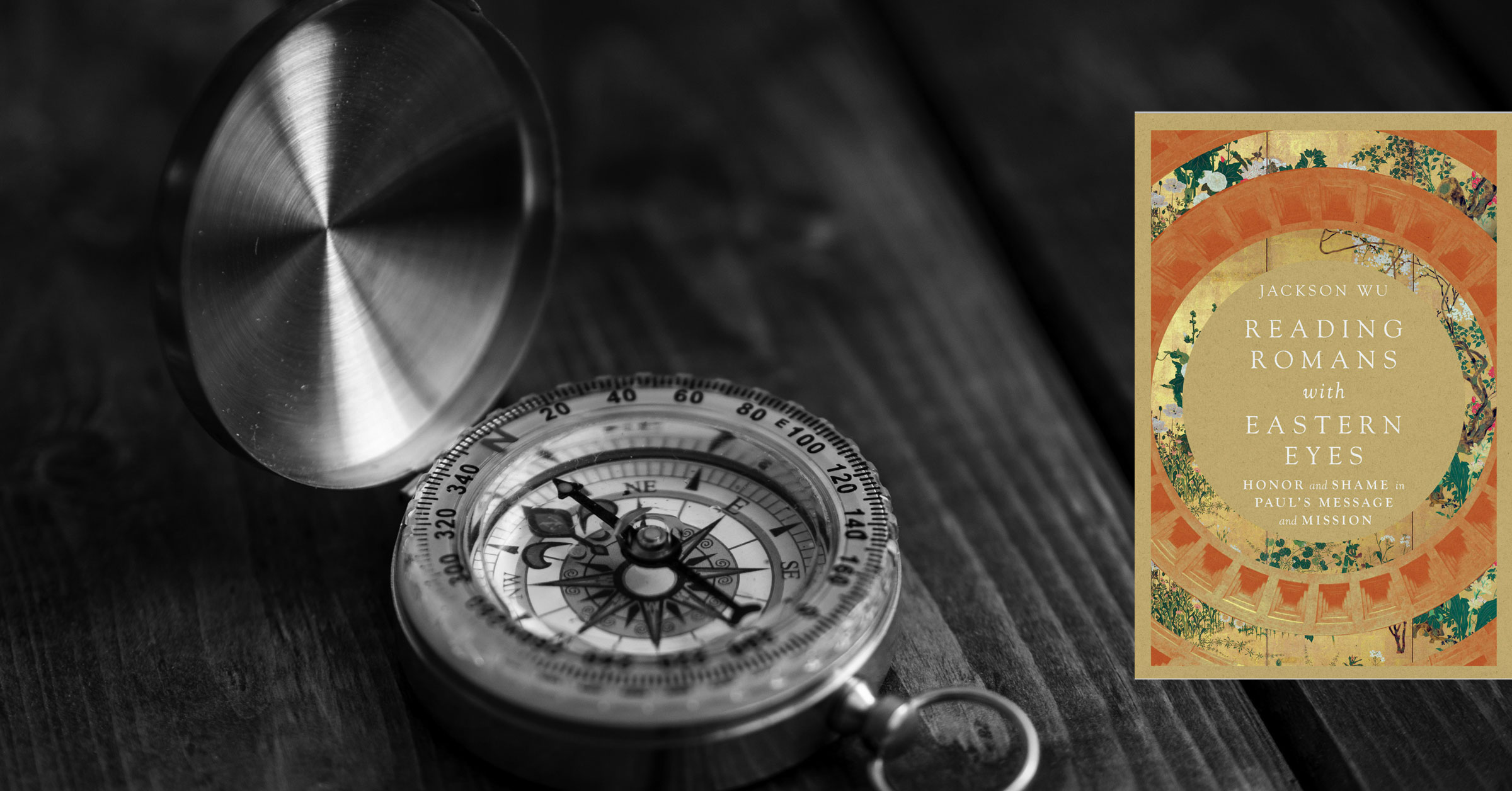Book Review: Reading Roman with Eastern Eyes

Book Review: Reading Roman with Eastern Eyes
Book Review: Reading Roman with Eastern Eyes
Book title: Reading Roman with Eastern Eyes
Author: Jackson Wu
Downers Grove, Intervarsity Press, 2019
Number of pages: 237
Acquiring World View
Author Jackson Wu explains early in Reading Romans with Eastern Eyes that none of us are born with cultural perspective. We don’t arrive on this planet with a world view. “Parents and local environment have disproportionate influence. Also, people belong to multiple social groups and subcultures,” Jackson Wu explains. To illustrate, he gives readers a snippet of a scene from the movie Karate Kid.
To what extent does an American-born Chinese or Korean have an Eastern rather than Western perspective? A scene from The Karate Kid (2010) illustrates the point. A mom and her son, Dre, board a plane en route to China, where she will begin a new job. The mother lectures Dre to practice his Mandarin with an Asian man sitting across the aisle. Grudgingly, Dre asks, “Ni hao ma? Ni jiao shenme mingzi?” (“How are you? What is your name?”) Surprised, the Asian man responds, “Dude, I’m from Detroit.” Dre simply replies, “Oh . . . uh . . . S’up?”
This is a brilliant and accessible illustration. Myself, being kind of a movie buff, I gravitate to these kinds of illustrations. Indulge me while I share Wu’s Inception movie illustration of the way Paul frames Romans within a larger narrative.
In Christopher Nolan’s 2010 film Inception, Dom Cobb (Leonardo DiCaprio) is a “dream expert” who wants to plant an idea into a wealthy tycoon’s mind. To avoid detection, Cobb goes deep into the man’s subconscious, entering layers of the businessman’s dreams embedded within multiple other dreams. Nolan’s film uses a “frame story,” a literary structure that places one or more stories within a larger narrative. Well-known works of literature use frame stories, including Homer’s Odyssey, Chaucer’s Canterbury Tales, and Mary Shelley’s Frankenstein. The strategy allows audiences to assume multiple perspectives within one overarching story. The effects are subtle but significant.
This approach allows Paul to address his audience as both a pastor and advocate for the advancement of the gospel through missions. That’s the ultimate purpose of Romans and, as a result, Jackson Wu’s purpose for writing Reading Romans through Eastern Eyes.
Jackson Wu thinks it is impossible to intelligently and humbly read the Bible and end up with an acultural theology. He says that it is a “fundamentalist fallacy.” I tend to agree. You can’t understand the fundamentals of anything and not take cultural context into consideration. Culture is fundamental. Wu proves that Paul understands this and weaves concepts of honor and shame throughout the book of Romans, thinking of his audience and their cultural context, influences, and hangups.
For myself early in my own missionary training, when first introduced to the concepts of honor and shame and “face,” I was confused since I was very unfamiliar and uneducated about these ideas. Jackson Wu explains these well. “Broadly speaking, a person’s honor or ‘face’ is one’s perceived worth according to the agreed standards of a particular social context,” writes Wu. “Every group holds certain ideals and assumptions. An implicitly affirmed value system determines how people gain, lose, or protect ‘face.’” Understanding these is essential for those called to missions or cross-cultural ministry.
The Figure 1. word cloud illustration does a fantastic job giving context to how honor and shame are conveyed in scripture.
A Middle Way
“Rather than debate whether Paul’s letter and theology have a “center”—justification, God’s righteousness, or something else—this study explores Paul’s message from an honor-shame perspective,” Wu says. When perspectives clash or are heatedly debated, Wu attempts to find a middle way as Jackson Wu explains in this interview [link to podcast part one].
Wu points out that it is through being willing to find the middle way that we are able to gain the cultural perspective needed for accurate interpretation of Paul’s epistle. “To say Westerners cannot have an Eastern perspective effectively nullifies all biblical interpretation. After all, crossing contemporary cultures is exceedingly easier than traveling through time.”
Excellent resources
You’ll wear this book out accessing its resources. Extras at the end of this book include:
- discussion guide
- bibliography
- author index
- subject index
- scripture index
Reading Romans Takes with Eastern Eyes takes approximately 4 hours and 44 minutes to read. That is, if you’re not furiously underlining, taking notes, and Googling all the awesome footnotes. When you look at the Kindle version of “About this book,” you’ll learn that, as of the posting of this review, 1,523 passages have been highlighted 17,344. While this book most likely has a very niche audience, that’s a ton of highlighting. And that’s only in the digital version! In the Kindle app only! This is a book I’ve recommended in my own realm of personal and professional reference to a number of people. Jackson Wu’s work deserves, and I think will earn, a much broader audience. Grab this book for yourself. And get one for a missionary or theology interested friend so you won’t end up giving your only copy away. You’ll definitely want to share it.
Jackson Wu links
» Book by Jackson Wu: One Gospel for All Nations
» Book by Jackson Wu: Reading Romans through Eastern Eyes
» 2020 Honor Shame Conference
» Honor Shame Conference Promo sheet
» Mission One
» Jackson Wu Blog
» Jackson Wu on Facebook
» Jackson Wu on Twitter
